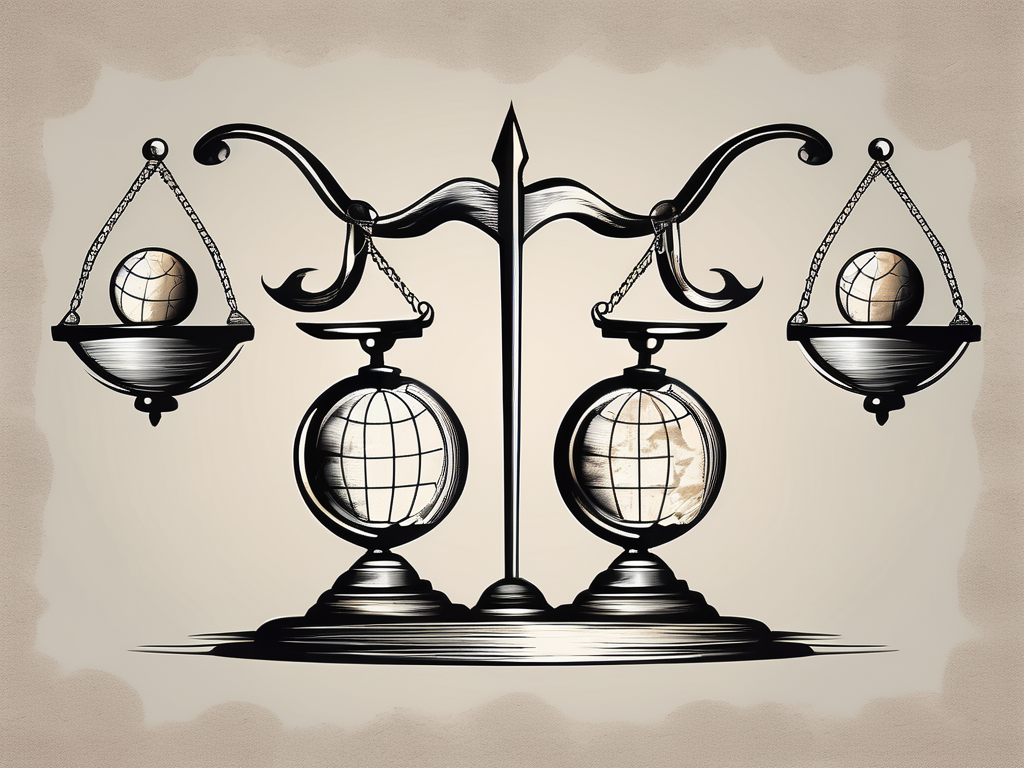In today’s world, discussions about race and ethnicity are important and necessary. People are seeking answers and guidance on this complex topic from various sources, including religious texts. As followers of the Bible, it is natural for us to turn to scripture to understand what it has to say about race. Examining the perspectives and teachings presented in the Bible can provide valuable insights into our understanding of race and how we should approach it. In this article, we will explore different aspects of what the Bible says about race, including its historical context, teachings on equality and brotherhood, role in biblical narratives, stance on racial discrimination, and its relevance in today’s context.
Understanding the Concept of Race in Biblical Times
The concept of race as we understand it today did not exist in biblical times. The Bible does not systematically categorize people according to their physical appearance. Instead, it describes people based on their nations, tribes, or lineages. While physical distinctions are occasionally mentioned, the focus is primarily on spiritual and cultural differences. Understanding this perspective is crucial when exploring the Bible’s teachings on race.
In biblical times, people identified themselves primarily by their nationality or tribe. This was because the concept of race, as we understand it today, was not yet developed. The Bible focuses on the spiritual and cultural aspects of different groups of people, rather than their physical characteristics. It recognizes the diversity among nations and tribes, but it does not place one group above another based on race.
It is important to note that the Bible does mention physical distinctions on occasion. For example, in the book of Genesis, it describes how Esau was born with red hair, while his twin brother Jacob was not. However, these physical differences are not used to categorize or judge people. They are simply mentioned as part of the narrative.
The Origin of Different Races: A Biblical Perspective
Biblical references to the origins of different races are often interpreted in multiple ways. One interpretation is that all human beings are descended from Adam and Eve, making us one human race. This perspective emphasizes the unity of all people and rejects the idea of racial superiority or inferiority.
Another interpretation suggests that the division of races occurred after the dispersion of humanity following the incident at the Tower of Babel. According to this interpretation, different groups of people developed distinct languages and cultures as they spread out across the earth. However, it is important to note that this division is not based on race but on language and culture.
Regardless of the interpretation, the Bible emphasizes the unity of all people through our shared humanity, rather than emphasizing racial differences. It teaches that every person is created in the image of God and is therefore deserving of dignity and respect.
Biblical Figures and Their Ethnic Backgrounds
An interesting aspect of the Bible is the diversity of its main characters. While most of the central figures are of Israelite descent, there are instances of individuals from different ethnic backgrounds playing significant roles. These examples highlight the biblical emphasis on character and faith rather than race or ethnicity.
One such example is the story of Moses, who married an Ethiopian woman named Zipporah. This marriage demonstrates that the Bible does not prohibit interracial relationships and shows that God values individuals based on their character and faith, rather than their ethnicity.
Another example is found in the book of Ruth, which tells the story of a Moabite woman named Ruth who became part of the lineage of King David. This story highlights the inclusivity of God’s plan and the acceptance of individuals from different backgrounds into His family.
These examples challenge the notion of racial superiority or exclusivity and emphasize the importance of character and faith in the biblical narrative. They remind us that the Bible’s teachings on race are not about dividing people, but about recognizing the inherent worth and value of every individual, regardless of their ethnicity.
The Bible’s Teachings on Equality and Brotherhood
The Bible contains numerous teachings on equality and brotherhood that are applicable to all people, regardless of race or ethnicity. These teachings are found both in the Old Testament and the New Testament, underlining their significance throughout biblical history.
Understanding the biblical teachings on equality and brotherhood requires delving into the rich tapestry of the Old Testament. From the very beginning, God’s desire for equality among His people is evident. In Genesis 1:27, it is written, “So God created mankind in his own image, in the image of God he created them; male and female he created them.” This foundational verse establishes the inherent worth and value of every human being, irrespective of gender or any other societal construct.
Old Testament Verses on Equality
The Old Testament reinforces the importance of treating everyone equally and justly. Leviticus 19:34 states, “The foreigner residing among you must be treated as your native-born.” This verse reflects the ethical principles of the Old Testament, urging Israelites to show compassion and fairness to those from other nations.
Furthermore, the book of Proverbs provides additional insights into the biblical teachings on equality. Proverbs 22:2 declares, “Rich and poor have this in common: The Lord is the Maker of them all.” This verse emphasizes that regardless of one’s socio-economic status, all individuals are equal in the eyes of God. It calls for a society where wealth and poverty do not define a person’s worth, but rather, where compassion and justice prevail.
Another powerful example of equality in the Old Testament is found in the story of Ruth. Despite being a Moabite, a foreigner, Ruth is embraced by the Israelites and ultimately becomes an ancestor of King David and, consequently, Jesus Christ. This narrative highlights the inclusivity and acceptance that God desires for His people, transcending cultural and ethnic boundaries.
New Testament Teachings on Brotherhood and Love
The New Testament takes the message of equality further, emphasizing the importance of brotherhood and love for one another. In Galatians 3:28, the apostle Paul states, “There is neither Jew nor Gentile, neither slave nor free, nor is there male and female, for you are all one in Christ Jesus.” This verse highlights the unity and equality that Christians are called to embrace, transcending societal divisions such as race and gender.
Expanding on this theme, the teachings of Jesus in the New Testament exemplify the principles of equality and brotherhood. Jesus consistently challenged societal norms and prejudices, reaching out to those who were marginalized and oppressed. He demonstrated compassion and love towards Samaritans, tax collectors, and even lepers, breaking down barriers and emphasizing the inherent worth of every individual.
Moreover, the parable of the Good Samaritan, found in Luke 10:25-37, provides a profound illustration of the biblical teachings on equality and brotherhood. In this parable, Jesus teaches that true neighborly love extends beyond social and cultural boundaries, urging His followers to show mercy and compassion to all, regardless of their background or circumstances.
In conclusion, the Bible’s teachings on equality and brotherhood are not limited to a few isolated verses but are woven throughout its pages. From the Old Testament to the New Testament, the message remains consistent: every individual is created in the image of God and deserves to be treated with dignity, respect, and love. These teachings challenge us to embrace diversity, break down societal barriers, and strive for a world where equality and brotherhood prevail.
The Role of Race in Biblical Narratives
Examining the biblical narratives can provide profound insights into the role of race throughout biblical history. These narratives shed light on the complex relationships between different ethnic groups and the intricate interactions between them, revealing a tapestry of diversity and unity.
The biblical narratives not only explore the role of race but also delve into the broader themes of identity, faith, and divine purpose. They invite us to reflect on the profound questions of what it means to be chosen, how we define ourselves and others, and how our beliefs shape our interactions with those who are different from us.
Race and the Israelites: A Closer Look
One of the central focuses of the biblical narratives is the Israelites, considered God’s chosen people. However, a closer examination reveals that their selection was not based on their race but rather on their covenant relationship with God. The narratives surrounding Israel’s interactions with other nations convey the importance of faith in God rather than racial identity.
These narratives challenge the prevailing notion that race determines one’s worth or standing before God. Instead, they emphasize the significance of a personal relationship with the divine, highlighting the idea that the true measure of a person lies in their faith and devotion, transcending the boundaries of race and ethnicity.
Gentiles in the Bible: An Examination of Racial Dynamics
While the Israelites hold a central role in the biblical narratives, the inclusion of Gentiles, those outside of Israelite heritage, is also significant. These narratives highlight God’s intention to extend His love and salvation to all people, regardless of their racial background.
Through the stories of Gentiles who encountered God and experienced His grace, the Bible challenges the notion of racial exclusivity. It emphasizes the universal love of God, which transcends human divisions and embraces the diversity of His creation.
These narratives not only provide a glimpse into the racial dynamics of biblical times but also invite us to examine our own attitudes and prejudices. They call us to embrace the inclusive love of God and to recognize the inherent worth and dignity of every individual, regardless of their race or ethnicity.
In conclusion, the role of race in biblical narratives is multifaceted and thought-provoking. It challenges our preconceived notions, encourages us to question societal constructs, and reminds us of the universal love and grace of God. As we delve deeper into these narratives, we discover a rich tapestry of diversity, unity, and the transformative power of faith.
The Bible’s Stance on Racial Discrimination
The Bible strongly condemns any form of racial discrimination or prejudice. From its teachings on justice and love for one another, it is clear that racism goes against the principles outlined in scripture.
Racial discrimination is a deeply rooted issue that has plagued societies throughout history. However, the Bible provides a moral compass that guides believers towards treating all individuals with respect, regardless of their race or ethnicity.
Biblical Principles Against Prejudice and Discrimination
The Bible repeatedly emphasizes the importance of justice, compassion, and fairness. Proverbs 22:2 states, “Rich and poor have this in common: The LORD is the Maker of them all.” This verse reminds us that all human beings are created by God and deserving of equal respect and dignity.
Furthermore, the book of James highlights the inconsistency of showing favoritism based on external appearances. James 2:9 warns, “But if you show favoritism, you sin and are convicted by the law as lawbreakers.” This verse serves as a powerful reminder that God’s law does not discriminate and calls for equal treatment of all individuals.
In addition, the Bible teaches that God is not partial and does not show favoritism based on race or ethnicity. Acts 10:34-35 declares, “Then Peter began to speak: ‘I now realize how true it is that God does not show favoritism but accepts from every nation the one who fears him and does what is right.’” This passage reinforces the idea that God’s love extends to all people, regardless of their racial background.
The Bible’s Message of Love and Acceptance for All Races
The central message of the Bible is one of love and acceptance. Jesus’ teachings, such as the parable of the Good Samaritan, emphasize the importance of showing love and compassion to everyone, even those from different racial or ethnic backgrounds.
The parable of the Good Samaritan, found in Luke 10:25-37, challenges societal prejudices by highlighting the kindness and compassion of a Samaritan towards a Jewish man who had been robbed and left for dead. This story serves as a powerful example of breaking down racial barriers and treating all individuals with love and respect.
Furthermore, the apostle Paul emphasizes the unity of believers in Christ, regardless of their racial or ethnic background. In Galatians 3:28, he states, “There is neither Jew nor Gentile, neither slave nor free, nor is there male and female, for you are all one in Christ Jesus.” This verse highlights the equality and unity that believers share in Christ, transcending any divisions based on race or ethnicity.
It is important to note that while the Bible condemns racial discrimination, it also calls for believers to actively combat injustice and promote equality. Micah 6:8 states, “He has shown you, O mortal, what is good. And what does the LORD require of you? To act justly and to love mercy and to walk humbly with your God.” This verse reminds believers of their responsibility to actively pursue justice and stand against discrimination in all its forms.
In conclusion, the Bible’s stance on racial discrimination is clear: it condemns any form of prejudice or discrimination based on race or ethnicity. The teachings of scripture emphasize the importance of justice, compassion, and love for one another, calling believers to treat all individuals with respect and dignity. As followers of Christ, it is our duty to actively combat racial discrimination and promote equality in our communities.
Interpreting the Bible’s Message on Race in Today’s Context
The Bible’s teachings on race are not meant to be interpreted in isolation, but rather applied to our modern society. Understanding how the principles of the Bible can guide our attitudes and actions towards race is essential in promoting racial harmony.
Applying Biblical Teachings on Race to Modern Society
Applying the Bible’s teachings on race requires a commitment to justice, equality, and understanding. It involves recognizing and challenging our own biases and striving to treat all individuals with respect and dignity, regardless of their racial or ethnic background.
The Role of the Church in Promoting Racial Harmony
The church plays a crucial role in promoting racial harmony by actively fostering inclusivity and diversity within its community. By embracing and practicing the biblical principles mentioned earlier, the church can become a force for positive change and a model for societal transformation.
In conclusion, the Bible provides valuable insights into the topic of race. While the concept of race as we understand it today may not be explicitly addressed, the Bible emphasizes the inherent worth and equality of all people. It teaches us to treat each other with love, compassion, and justice, regardless of our racial or ethnic background. As followers of the Bible, it is our responsibility to apply these teachings to our lives and actively work towards racial harmony in our communities.












